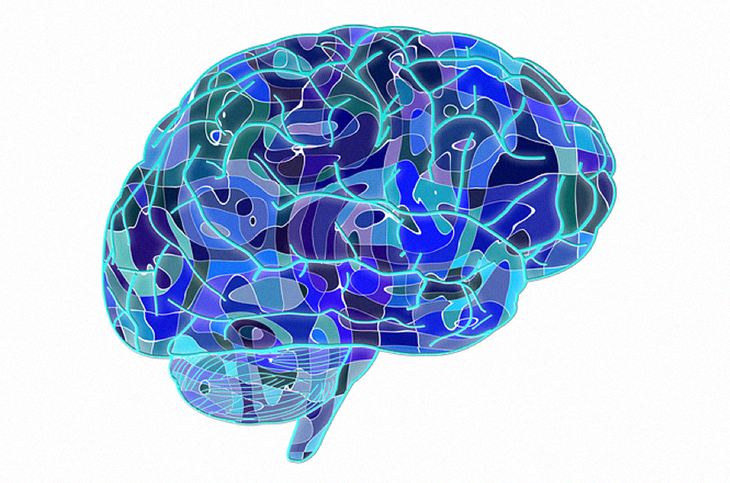
According to researchers, there could be a chance that the hallucinogenic drug called DMT (dimethyltryptamine) could possibly give crucial aid to victims of stroke with its ability to lessen the damage inflicted on patient’s brains as they are being rushed to the hospital.
Algernon Pharmaceuticals, which is a Canadian clinical stage drug re-purposing company, has made plans to microdose participants in what is to be the first of its kind clinical trial that aims ‘to help stroke victims’ brains recover faster through a “rewiring” process,’ according to the online website, Metro.
Strokes occur when the supply of blood to a portion of the brain is majorly reduced or stopped, interrupting the brain’s need for fresh oxygen and nutrients, with in turn launches the death of critical nerve cells. In worst case scenarios, stroke can lead to death. In American alone, around 795,000 individuals suffer from strokes every year.
But research from Algernon claims that the controversial drug DMT could actually play a vital role at stopping or preventing the worst effects that a stroke could inflict by firing off the growth of new neurons, which can then effectively kickoff the necessary healing process.
In this groundbreaking and first-ever clinical trial of its kind done in the United States, DMT will be administered to stroke patients as they are placed in the back of the ambulance on their drive to the emergency room. While these doses will be small enough to not trigger any hallucinations, what scientists are saying is that when given in microdoses, the DMT will be enough to bring about major benefits.
Phase 1 of the trials are set to begin sometime in March, as long as they get the go signal from the authorities. However, there’s a chance that it could take years before the hallucinogenic gets any approval for human use.
For CEO of Algernon, Christopher Moreau, he is more than hopeful that the trial can prove just how effective the drug can be to help heal the brains of individuals that have suffered from a stroke.
Moreau shares, “Since we’re dealing with stroke patients, we will be using the sub-hallucinogenic dose, which in pre-clinical studies has still shown to improve neuroplasticity.”
“It will help the brain even though patients aren’t having the psychedelic experience, and we really don’t want that if your patient has just had a stroke. The sooner you can start to treat post-injury, the better,” he adds.
But the drug also has limits. Moreau explains, “DMT may not benefit hemorrhagic (stroke victims), we don’t know, but we’re hoping it won’t cause them any problems because then we don’t have to wait for the CT scan, we can treat in the ambulance.”
DMT or dimethyltryptamine is more commonly known as “spirit molecule” due to the drugs extremely potent hallucinogenic properties. It is one of the main psychoactive components of ayahuasca, which is a type of brew used for centuries in shamanistic rituals in South America. It eventually made its way to Europe and North America where it was used as a recreational drug in music festivals or concerts. These days, its street names are Businessman’s Trip, Dimitri, and Forty-Five-minute psychosis.
Users of DMT and other experts claim that the drug is very similar to other psychedelic or hallucinogenic drugs such as LSD (lysergic acid diethylamide) and psilocybin, otherwise known as “magic mushrooms.” The main difference is that the psychedelic experience or “trip” that people get from DMT is much shorter than the trip they can get from LSD or psilocybin.
Studies done with DMT have shown that the drug can improve motor functions, while tests that were done on brain-damaged rats resulted in helping create new brain cells.
Algernon’s Moreau also shares that studies have exhibited that within just a few hours after a stroke, the brain tries to rewire itself, and what DMT does is give the promise of possibly accelerating the process.
The current process of responding to a stroke leaves patients vulnerable in the immediate aftermath of a stroke, mostly because doctors don’t necessarily know what kind of stroke a patient is suffering from right off the bat. While most ischemic strokes normally involve blood clots that need blood thinners as the immediate response, hemorrhagic strokes need a much more invasive form of treatment. Moreover, when patients are given the wrong type of treatment, the result could be fatal.
What Algernon hopes to accomplish within the first phase of the trials is if they are successful, then regulators will also approve a more widespread acceptance for its use in the future. For the second and third phases of the trial, Algernon also hopes to continue the use of DMT treatments, both in short and long terms, in order to prove the effectiveness of this type of treatment.
This is not the first time that DMT is being used as an alternative form of treatment. Another report from late last year shares how the UK also approved the use of the hallucinogenic drug to treat depression.
What are your thoughts? Please comment below and share this news!
True Activist / Report a typo


